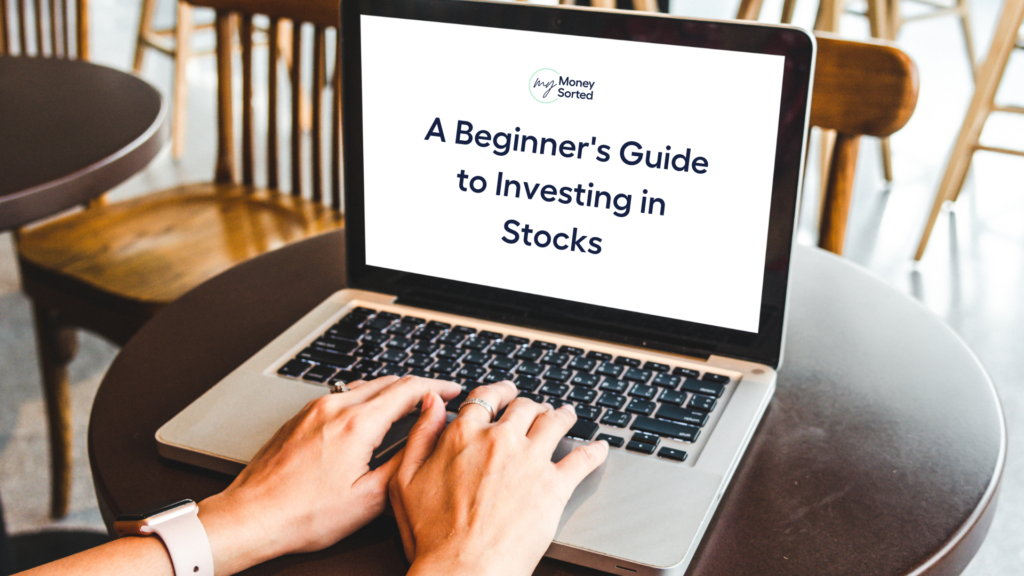Are you planning on investing your money to acquire more assets and achieve your financial goals? Do you have a great business idea, but not enough knowledge or experience, to launch it with confidence?
This article covers all the essential information new investors should know before spending money on an investment. It explains the types of investment, how the investment market works, and where to start investing as a beginner.
We explore the basic principles, types of investment, how the investment market works, and where to start investing. We also discuss investment strategies and the golden rules of investment.

Jump straight to…
- Are you planning on investing your money to acquire more assets and achieve your financial goals? Do you have a great business idea, but not enough knowledge or experience, to launch it with confidence?
- What Is Investment?
- Types of Investments
- Asset Management
- Assets You Can Invest in
- Exchanged Traded Funds (EFTs)
- What Is an Investment Strategy?
- Investment Strategies: Types and Examples
- A Beginner’s Guide to Investing in Stocks
- Convenient Ways to Trade Global Markets
- Best Returns on Investments
What Is Investment?
An investment is any asset acquired to generate profit. It involves putting in resources like time, money, and effort to achieve greater returns in the future.
An investment can also be a great tool for creating more income sources. Examples of investments include stocks, bonds, real estate property, or a business.
The idea of an investment is to provide future income or financial growth. A certain level of risk is associated with the resources that are invested. These assets may not generate profit, or in some cases, may lose value over time.
It is the risk of losing, or not having financial growth, that differentiates investment from saving, which is only an accumulation of money or assets for future use without such a risk.
Types of Investments
There are different types of investment. Choosing a suitable investment can be the key to growing your assets and achieving your financial goals in a specified time frame.
Consider the following Australian investment options:
Growth Investments
Growth investment focuses on increasing the capital of an investor. Investors usually invest in growth stocks of small companies whose earnings are expected to grow at an above-average value compared to the overall market or industry sector.
Purchasing stocks in emerging companies could mean greater returns if they’re performing well. However, keep in mind that these are high-risk investments, meaning there’s also potential for huge losses.
Growth investors have to consider certain factors when assessing the stocks to invest in. The historical and future earnings, returns on equity (ROE), profit margins, and the past performance of shares are among the essential things that need to be evaluated.
Shares
Shares are financial assets in equity ownership in a corporation that provides for an equal distribution in any surplus profits through dividends.
Shares are growth investments that represent equity stock in a company. Owning shares makes you a shareholder and you can receive income from dividends.
Also referred to as equities, shares have been known to deliver higher returns compared with other assets. Types of shares include Australian shares, or preferred shares.
The terms ‘stocks’ and ‘shares’ refer to the same thing and are often used interchangeably. To invest in stocks or shares of a company, you have to have your own brokerage account.
Common share is a security representing ownership in the corporation. Holders of this stock have the right to elect the board of directors and decide on corporate policies.
On the other hand, a preferred share is the stock, with dividends paid out to shareholders before issuing ordinary stock dividends. In the case of bankruptcy, preferred stockholders can get payment from the company assets before common shareholders.
Shareholders may benefit from capital gains or stock exchange, like the Australian Securities Exchange (ASX), if the company’s value in the share markets increases over time.
Property Investment
Property is a growth investment because property prices can rise substantially over time. Similar to shares, however, the property can also depreciate and incur losses.
You can invest directly by purchasing a property, or indirectly through a property investment fund. An investment in property can be a short-term or long-term investment.
Once you find a property you want to invest in, compare the expected income to your outgoing expenses. Assess any shortfall and consider whether you can cover it long-term.
More importantly, research the property market before you purchase an investment property. Where and what you buy impacts your return on investment (ROI).
Defensive Investment
Defensive investment is a conservative method of portfolio management and allocation that minimises the risk of losing the principal.
This type of investment involves maintaining asset allocation and purchasing short-maturity and high-quality bonds and blue-chip stocks across various sectors and countries like Australia.
Defensive investment places stop-loss orders and holds cash and cash equivalents in down markets. It is designed to safeguard investors against high losses from drastic market fluctuations.
Cash Investment
Cash investment is generally a short-term obligation taking fewer than 90 days to complete. It generates profit through interest rates, but the returns are often lower than other types of investments.
Still, cash investments may have lower levels of risk. Cash investment types include savings account, money market, and certificate of deposit (CD).
Cash investors or fund managers with an ABN (Australian business number) can be insured by the Federal Deposit Insurance Corporation.
Fixed-Interest
This type of investment refers to the investment securities that provide payment to investors in fixed income or dividend payments until it reaches the maturity date. During maturity, investors are given the principal amount they have invested.
Corporate and government bonds are the common types of fixed-interest investments. Investors can determine the profits in advance, unlike equities with no cash flows or variable-income securities provided to investors.
Asset Management
Asset management involves investment portfolio direction, whether in part or totality, by the chosen financial services institution, usually investment banks.
Financial institutions, and in some cases individuals, can offer investment diversification services and financial product offerings for investors.
The asset or investment management process has a dual purpose: directing assets and mitigating risk.
Given there are investment minimums, asset management is generally available to corporations, government entities, high net-worth individuals, and financial intermediaries like investment banks, commercial banks, mutual funds, or pension funds.
Assets You Can Invest in
If you’re considering investing outside of property and super, here are some investment options in Australia that you can look into when building your investment portfolio.
Managed Funds
Also called a managed portfolio, a managed fund is a financial vehicle that pools money from various investors to invest in securities like bonds, stocks, money market instruments, and other assets.
Pooling your assets can give you access to investments and a level of diversification that isn’t usually achieved by an individual.
Managed funds are handled by professional managers who allocate the assets and aim to produce capital income or gains.
Exchanged Traded Funds (EFTs)
Exchange traded funds are usually passive investment options that track a sector, commodity, index, or other assets without trying to outperform these assets. This means your investment’s value in an ETF can go up and down, depending on the index it is tracking.
EFTs can also be sold or purchased on a stock exchange in the same manner as a regular stock.
Investment Bonds
A bond is a company loan made by an investor (through investment managers) to a borrower (usually governmental or corporate).
The company pays a corresponding interest at predetermined intervals in exchange for the capital, which is returned on the maturity date.
Annuities
These are contracts between the insurance company and the investor. The latter can make a series of payments or a lump-sum payment and eventually acquire cash flows in return.
The purpose of an annuity is to provide a regular income stream, especially during retirement.
Listed Investment Companies (LICs)
These are corporations or trusts that invest the pooled capital of investors in financial securities. Their main goal is to hold and manage securities for investment purposes.
LICs also provide investors with various funds and services, such as portfolio management, custodial, recordkeeping, legal, and tax management.
Real Estate Investment Trusts (REITs)
These are companies that operate or finance profit-generating real estate through property development schemes (PDS).
The PDS process is modelled after mutual funds that gather capital from various investors, allowing them to earn dividends from investments without buying, managing, or financing properties.
Gold
Gold investments can either be in bullion or shares in gold-mining companies with an AFSL (Australian financial services license). The investment opportunities can boost share earnings, because when the price of gold goes up, the profit margins are high.
Peer-to-Peer Lending (P2P)
With P2P, you can acquire loans directly from other people, eliminating the charges of having financial institutions.
P2P is also known as crowd or social lending, and various websites now facilitate the process as an alternative method of financing.
Cryptocurrency
Crypto is a virtual or digital currency that allows online payments in tokens and is secured by cryptography, making it almost impossible for any counterfeiting.
Generally, cryptocurrencies are not issued by any central authority, making them free from government interference or manipulation.
What Is an Investment Strategy?
An investment strategy is a set of principles designed to help investors achieve their financial goals. Strategies guide investors in making financial decisions based on risk tolerance, objectives, and future needs for the capital.
Strategies are developed according to an investor’s age, lifestyle, goals, financial situation, capital, living conditions, and expected returns.
Strategies can help organise portfolios or have them as a basis when working with a professional planner.
Investment Strategies: Types and Examples
There are four common investment strategies that can help investors in their day-to-day business.
Understanding the nature of each one can help you choose the best strategy over the long-term without incurring unnecessary expenses for shifting courses.
- Value Investing
Value investors seek stocks that are undervalued, or those that do not reflect intrinsic value security.
This investment strategy is partly based on the idea that there is a level of irrationality in the market that presents opportunities to get discounted stocks and generate profit.
For example, a company had a share price of $150 last week and $75 this week. This means you are getting twice the shares for the same price this week.
- Growth Investing
Growth investors are after investments that provide strong potential in terms of future performance or earnings of stocks.
This investment strategy involves evaluating the current stock status and its potential to grow, and not focusing on speculative investing.
- Momentum Investing
Momentum investors hold on to the idea that winners keep winning and losers keep losing. Therefore, they prefer to get stocks that are performing on top and usually short-sell specific securities going downward.
Traders use a momentum investing strategy to profit from buying or selling short securities that are trending strongly.
- Dollar-Cost Averaging
This strategy is the practice of having regular investments or self-managed super funds (SMSF) in the market as term deposits and is not mutually exclusive.
For example, you may put $100 in your investment or savings account every month. You can use automated features and it requires almost no oversight.

A Beginner’s Guide to Investing in Stocks
Before you commit your time and money to an investment, consider the following guidelines for making stock investments:
- Assess what kind of investor you are. Define your investment goals and how much risk you’re willing and able to take.
- You can use online brokers or leverage robo-advisors that use technology to lower costs and streamline investment advice.
- You can invest through your employer. A contribution as small as 1% of your salary is very doable.
- Shop around and check out broker reviews before deciding on where you want to open an account. Some firms don’t allow opening an account with an amount as small as $1,000.
- Depending on how often you trade, commissions and fees for brokers can add up quickly, affecting your profitability even before your investments earn money.
Ensure that your investments earn enough to cover these costs.
- For beginning investors, the mutual funds loads or fees are the same, regardless of the amount invested.
- Invest in diversified assets to reduce the risks associated with one investment performance that may affect your rate of return or overall investment.
Factors to Consider When Making Investment Decisions
Diversification helps ensure favourable returns and minimize the risks in investment. When making investment decisions, also consider the following:
- Focus on your timeline
- Choose the suitable asset classes
- Balance stocks and bonds
- Use a benchmark in technical and fundamental analysis
- Manage costs
Golden Rules in Investment
Warren Buffett, the sixth richest person in the world, shared his golden rules as a piece of financial advice to investors:
- Never lose money
- If the business does well, the stock follows
- It’s far better to buy a wonderful company at a fair price than a fair company at a wonderful price
- Our favourite holding period is forever
Convenient Ways to Trade Global Markets
Trading in the financial markets requires sufficient knowledge about the process. Before you start investing, research the investment market through financial services guides, general information on charts and price action, and technical and fundamental analysis.
Should you be interested in trading global markets, here are five steps to do it:
- Open a trading account
- Consider studying in a market crash course
- Make analysis a habit
- Practice trading. Working with a financial adviser can be beneficial to gain mastery
- Learn trading from other available resources
Best Returns on Investments
Among all types of investment, the stock market has historically yielded the highest investment returns over long periods.
The success rate in stocks investment also depends on a specific time frame. Stock prices are regulated by the Australian Securities and Investments Commission (ASIC). They change very often, resulting in shorter periods that can mean greater risks.
What if you could launch your investment journey with the guidance of an experienced finance expert instead of taking the all too common ‘hit-and-hope’ approach?
Many people may be unaware of this…but just like you, 41% of Aussies intend to get financial advice rather than going it alone, according to an Australian Securities and Investments Commission (ASIC) report.
Learn how to choose the best possible investment options that match your financial goals and situation by consulting with qualified finance experts like a financial adviser.
Find the right Financial Adviser for you with the help of an MMS Money Buddy.
When you book a call with an MMS Money Buddy, you’ll:
✓ get a better understanding of your money matters
✓ have an idea of the experts you can call on to help you reach your goals
✓ be matched with the right financial adviser who can help simplify your family’s journey to financial wellness
My Money Sorted is your stress-free pathway to getting ahead with your money. Here’s what your journey will look like:
Step 1: Start off with a quick money matters session with your MMS Money Buddy
Step 2: Get matched with a licensed Financial Adviser that’s right for your money situation
Step 3: Take the first step towards your money goals with a clear and sound roadmap prepared by an experienced Financial Adviser
It’s that easy!

I want to see all my options with the help of a Finance Expert
Call Our Team TodayReferences
- Investopedia, Rules that Warren Buffett Lives By, retrieved from https://www.investopedia.com/financial-edge/0210/rules-that-warren-buffett-lives-by.aspx
- Investopedia, How to Start Investing in Stocks: A Beginner’s Guide, retrieved from https://www.investopedia.com/articles/basics/06/invest1000.asp





